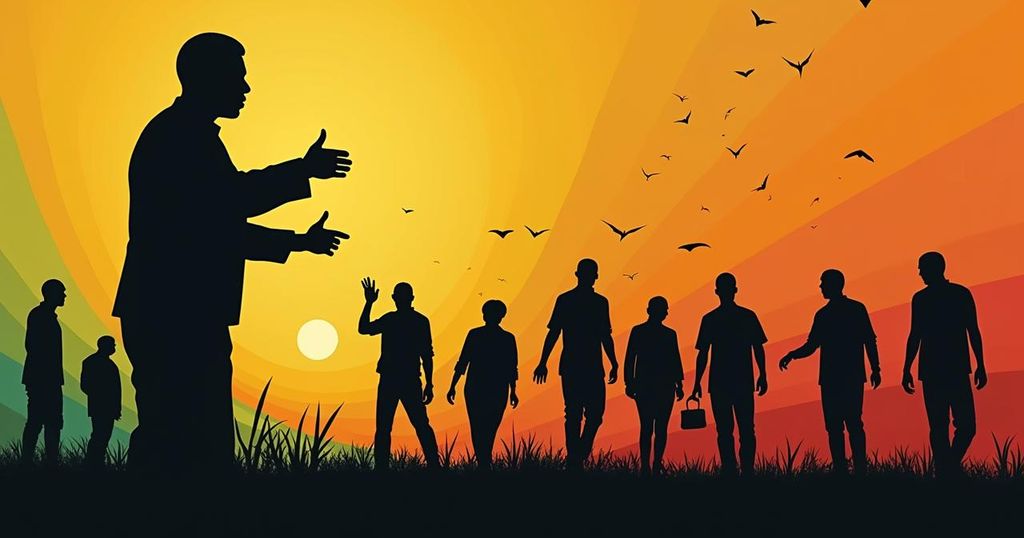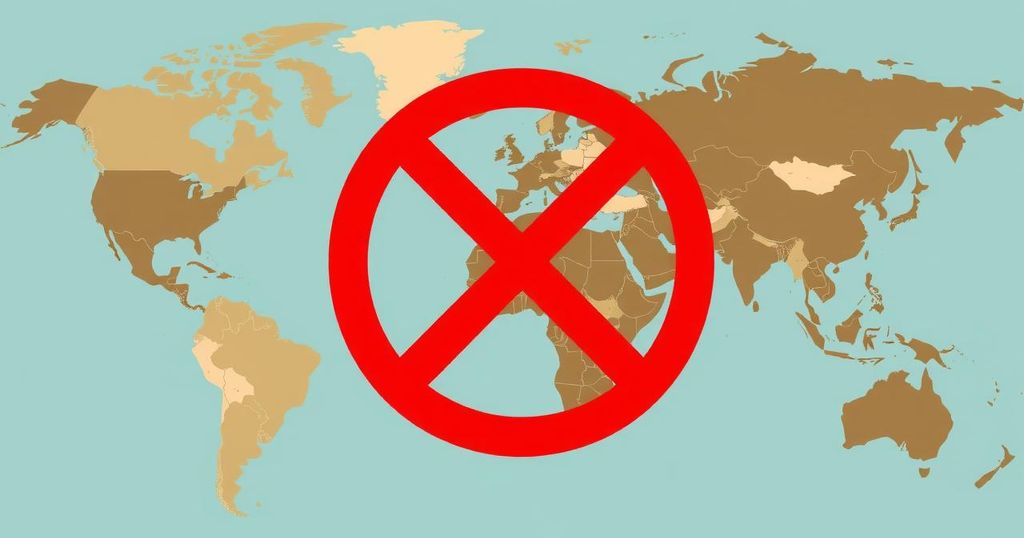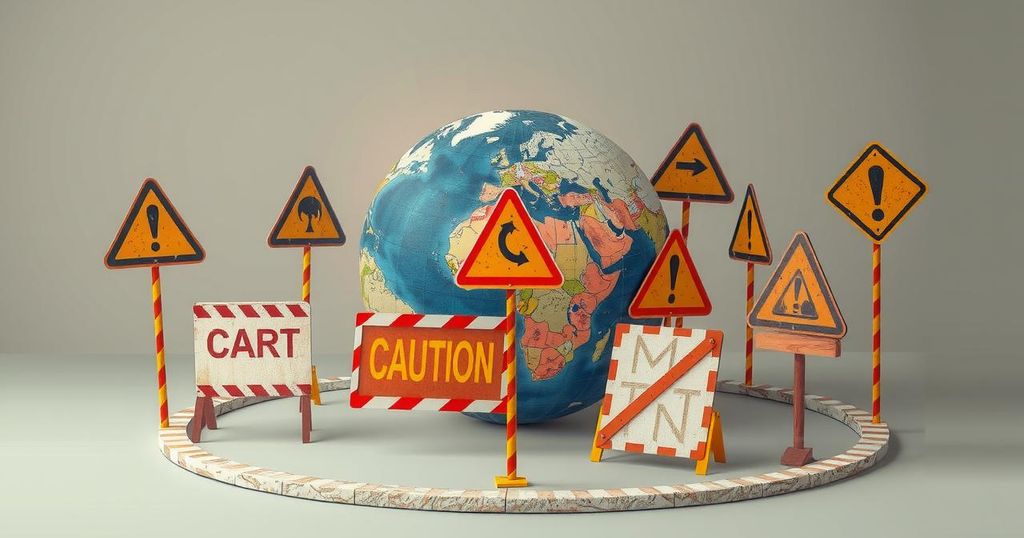Overview of Mozambique’s Upcoming Presidential Election
Mozambique is set to hold its presidential election on Wednesday, with approximately 17 million voters registered. The ruling Frelimo party fields David Chapo as its candidate, who is challenged by independent Venacio Mondlane, among others. The country faces a jihadist insurgency, dislocation of communities, and high levels of unemployment and hunger, exacerbated by climate issues. Amid concerns of corruption within the ruling party, the election results will unfold immediately after voting, with official announcements following in 15 days.
Mozambican citizens are preparing to cast their votes on Wednesday in a pivotal presidential election that will determine the successor to six-year President Filipe Nyusi, who has completed two terms in office. Approximately 17 million voters are registered in this nation of 31 million to elect not only a president but also 250 members of parliament and provincial assemblies. The ruling Front for the Liberation of Mozambique (Frelimo), which has held power since the country gained independence from Portugal in 1975, is anticipated to secure another victory. However, four candidates are campaigning vigorously to bring about significant changes in a country grappling with a prolonged jihadist insurgency in the northern region and vulnerabilities to climate change along its expansive coastline. The ongoing insurgency has displaced over 1.3 million people, exacerbating food insecurity as the region battles severe droughts. Previous local elections faced allegations of fraud and vote-rigging, igniting violent protests in Maputo. Nonetheless, the atmosphere surrounding the current election appears relatively calmer. The primary candidates include David Chapo from Frelimo, a former governor known for his role in promoting tourism in Inhambane, and Venacio Mondlane, an independent candidate renowned for his engineering and banking background, who is rallying support under the banner “Save Mozambique, this country’s ours.” Mondlane, endorsed by the newly formed Optimistic Party for the Development of Mozambique (Podemos), claims to have been cheated out of a local mayoral victory last year. Additionally, Lutero Simango, representing the Democratic Movement of Mozambique, emphasizes youth engagement through policies addressing unemployment and inequality, while Ossufo Momade leads the opposition party Renamo after succeeding Afonso Dhlakama. The election backdrop is marked by the ongoing conflict with an Islamic State-related faction, which has devastated northern communities since 2017. Approximately 600,000 displaced citizens have returned to find their homes and infrastructure devastated. The candidates have placed emphasis on the need to revitalize development initiatives impacted by the insurgency, notably the halted gas project in Cabo Delgado previously managed by TotalEnergies. Concerns accompany the ruling party as it has been tainted by corruption scandals, most notably the “tuna bond” incident, resulting in significant financial mismanagement. As voting concludes, immediate counting will commence, with preliminary results released within a few hours post-vote, followed by official announcements from the National Election Commission within a 15-day window.
The upcoming presidential election in Mozambique represents a crucial turning point amid a backdrop of political tension and numerous challenges. Mozambique has experienced significant turmoil due to a jihadist insurgency in the northern province of Cabo Delgado, resulting in mass displacement and severe humanitarian crises. The longstanding ruling party, Frelimo, remains largely dominant yet faces growing opposition amid calls for accountability and reform, particularly concerning allegations of corruption that have marred its reputation. The election’s outcome will shape the political landscape of Mozambique, where issues such as unemployment, food security, and governance are at the forefront of public concern.
In conclusion, Mozambique’s presidential election is poised to be a significant event, highlighting the populace’s desire for change amid ongoing crises related to security and governance. Voter turnout is expected to reflect citizens’ engagement with crucial issues such as insurgency, economic hardship, and political corruption. As candidates prepare for the election day, the outcomes will potentially dictate Mozambique’s future path in addressing these pressing challenges.
Original Source: apnews.com




Post Comment